|
Theorist
|
Key Issues & Links to Resources
|
Behaviorism — Learning occurs when new behavior or changes in behavior are acquired as a result of an individual's response to antecedent and consequent stimuli. The external environment shapes an individual's behavior by presenting antecedent stimuli that prompts a behavior, and consequent stimuli that reinforces (strengthens) the behavior.

|
|
B.F. Skinner
1904 —1990

|
"The major problems of the world today can be solved only if we improve our understanding of human behavior."
About Behaviorism (1974)
"Many instructional arrangements seem 'contrived,' but there is nothing wrong with that. It is the teacher's function to contrive conditions under which students learn. It has always been
the task of formal education to set up behavior which would prove useful or enjoyable later in a student's life."
|
|
 The Behavior of Organisms: An Experimental Analysis (1938) The Behavior of Organisms: An Experimental Analysis (1938)
 Skinner, B. F. (1948). 'Superstition' in the pigeon. Journal of Experimental Psychology, 38, 168-172. Skinner, B. F. (1948). 'Superstition' in the pigeon. Journal of Experimental Psychology, 38, 168-172.
 Walden Two (1948) Walden Two (1948)
 Science & Human Behavior (1953) Science & Human Behavior (1953)
 Verbal Behavior (1957) Verbal Behavior (1957)
 The Technology of Teaching (1968) The Technology of Teaching (1968)
 Beyond Freedom & Dignity (1971) Beyond Freedom & Dignity (1971)
 About Behaviorism (1974) About Behaviorism (1974)
 http://www.bfskinner.org/ http://www.bfskinner.org/
 The Origins of Cognitive Thought (Analysis of Behavior) The Origins of Cognitive Thought (Analysis of Behavior)

|
|
Robert Mager
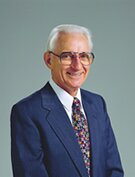
|
"The danger in leaping from apparent problem to apparent solution is that large amounts of time and money can be spent in throwing training at a problem that training cannot solve. You need to dig a little deeper... This is why a procedure like performance analysis is important to those who actually want to solve problems — rather than just talk about them. "
Analyzing Performance Problems (1984)
|
|
 Preparing Instructional Objectives, 2nd Ed. (1975) Preparing Instructional Objectives, 2nd Ed. (1975)
 Measuring Instructional Results, 3rd Ed (1997) Measuring Instructional Results, 3rd Ed (1997)
 Analyzing Performance Problems (w Peter Pipe), 2nd Ed (1984) Performance Analysis Checklist & Flowchart Analyzing Performance Problems (w Peter Pipe), 2nd Ed (1984) Performance Analysis Checklist & Flowchart
 Goal Analysis, 2nd Ed (1984) Goal Analysis, 2nd Ed (1984)
 What Every Manager Should Know About Training, 2nd Ed (1999) What Every Manager Should Know About Training, 2nd Ed (1999)
 Making Instruction Work, 2nd Ed (1997) Making Instruction Work, 2nd Ed (1997)
 http://www.cepworldwide.com/Bios/mager.htm http://www.cepworldwide.com/Bios/mager.htm
 Criterion Referenced Instruction Criterion Referenced Instruction
 "How to Write Great Learning Objectives" by Kevin Kruse "How to Write Great Learning Objectives" by Kevin Kruse

|
|
Fred Keller
1899 — 1996
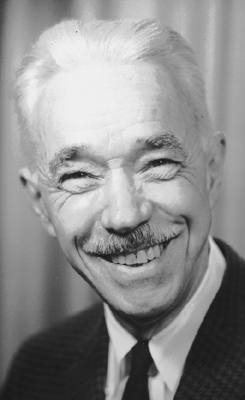
|
"(1) The go-at-your-own pace feature, which permits a student to move through the course at a speed commensurate with his ability and other demands of his time.
(2) The unit-perfection requirement for advance, which lets the student go ahead to new material only after demonstrating mastery of that which preceded.
(3) The use of lectures and demonstrations as vehicles of motivation, rather than sources of critical information.
(4) The related stress upon the written word in teacher-student communication; and finally:
(5) The use of proctors, which permits repeated testing, immediate scoring, almost unavoidable tutoring, and a marked enhancement of the personal-social aspect of the educational process". (Keller, 1968)
|
|
Personalized System of Instruction (PSI)
 Principles of Psychology (1950) with W.N. Schoenfeld Principles of Psychology (1950) with W.N. Schoenfeld
F S Keller (1968), 'Goodbye Teacher', Journal of Applied Behavior Analysis, 1, 79-87
 Keller, F. S. (1973). The Definition of Psychology (2nd ed.). Englewood Cliffs, N.J.: Prentice-Hall, 1973. Keller, F. S. (1973). The Definition of Psychology (2nd ed.). Englewood Cliffs, N.J.: Prentice-Hall, 1973.
Keller, F. S. (1974a). "The basic system". In F. S. Keller & J. G. Sherman (Eds.), The Keller handbook (pp. 14-23). Philippines: W. A. Benjamin.
Keller, F. S. (1974b). "PSI is not for everyone". In F. S. Keller & J. G. Sherman (Eds.), The Keller handbook (pp. 73-76). Philippines: W. A. Benjamin.
 Keller, F. S. (1982). Pedagogue's progress. Lawrence, KA: TRI Publications. Keller, F. S. (1982). Pedagogue's progress. Lawrence, KA: TRI Publications.
 http://psych.athabascau.ca/html/387/OpenModules/Keller/ http://psych.athabascau.ca/html/387/OpenModules/Keller/

|
Cognitivism — Learning is a change in knowledge stored in memory. Information processing is governed by an internal process — rather than external circumstance as emphasized by behaviorism. The process includes selecting information (attention), translating information (encoding), and recalling that information when appropriate (retrieval).

|
|
Robert Gagné
1916 — 2002
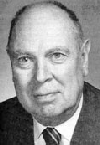
|
"There is a scientific discipline of instruction and a technology of instructional design founded on this science."
"There are known instructional strategies. The acquisition of different types of knowledge and skill require different conditions for learning." (Gagné, 1985)
|
|
Conditions of Learning
"Military training and principles of learning". (1962) American Psychologist, 17, 263-276
 The Conditions of Learning and the Theory of Instruction , 4th Ed, (1965, 1985) The Conditions of Learning and the Theory of Instruction , 4th Ed, (1965, 1985)
 Principles of Instructional Design, with L.J. Briggs & W. Wagner , 4th Ed. (1974, 1992) Principles of Instructional Design, with L.J. Briggs & W. Wagner , 4th Ed. (1974, 1992)
 The Nine Events of Instruction The Nine Events of Instruction
 http://tip.psychology.org/gagne.html http://tip.psychology.org/gagne.html
 http://www.psy.pdx.edu/PsiCafe/KeyTheorists/Gagne.htm http://www.psy.pdx.edu/PsiCafe/KeyTheorists/Gagne.htm

|
|
M. David Merrill

|
"The premise is that first principles for instruction do exist and that one or more of these first principles can be found in most instructional design theories and models. This premise also assumes that these design principles apply regardless of the instructional program or practices prescribed by a given theory or model. If this premise is true, research will demonstrate that when a given instructional program or practice violates or fails to implement one or more these first principles, there will be a decrement in learning and performance. Our survey of instructional products also demonstrates that many instructional programs fail to effectively incorporate all of these principles." (Merrill, 2001) |
|
 Teaching Concepts: An instructional design guide (1977). Educational Technology Publications Teaching Concepts: An instructional design guide (1977). Educational Technology Publications
 Instructional Design Theory (1994), Educational Technology Publications Instructional Design Theory (1994), Educational Technology Publications
 "Instructional Strategies that Teach" (1997). CBT Solutions Nov/Dec 1-11. "Instructional Strategies that Teach" (1997). CBT Solutions Nov/Dec 1-11.
 "Components of Instruction" (2000), in press "Components of Instruction" (2000), in press
 "Knowledge Objects and Mental Models (2000), In D.A. Wiley (ED. The Instructional Use of Learning Objects. Washington D.C.: Assoc for Educational Communications and Technology. "Knowledge Objects and Mental Models (2000), In D.A. Wiley (ED. The Instructional Use of Learning Objects. Washington D.C.: Assoc for Educational Communications and Technology.
 "First Principles of Instruction" (2001) "First Principles of Instruction" (2001)
 "A Pebble in the Pond: Model for Instructional Design", August 2002, Performance Improvement, Volume 41, Number 7, pages 39-44. "A Pebble in the Pond: Model for Instructional Design", August 2002, Performance Improvement, Volume 41, Number 7, pages 39-44.
 http://tip.psychology.org/merrill.html http://tip.psychology.org/merrill.html
 http://cito.byuh.edu/merrill/ http://cito.byuh.edu/merrill/
 http://www.id2.usu.edu/5Star/Index.htm http://www.id2.usu.edu/5Star/Index.htm
 http://www.id2.usu.edu/ http://www.id2.usu.edu/

|
|
Ruth Clark

|
"Learning requires an active processing of lesson content in such a way that it becomes integrated with existing knowledge in memory. Instructional methods are techniques that support the psychological processes that mediate the transformation of lesson content into internal knowledge and skills. The use of methods that support the learner's cognitive process and avoidance of methods that disrupt learning processes are what make lessons effective or ineffective. Some examples of popular instructional methods are examples, analogies, practice exercises, and graphics." Building Expertise (2003)
|
|
 Efficiency in Learning: Evidence-Based Guidelines to Manage Cognitive Load (2006) with Frank Nguyen and John Sweller Efficiency in Learning: Evidence-Based Guidelines to Manage Cognitive Load (2006) with Frank Nguyen and John Sweller
 Graphics for Learning: Proven Guidelines for Planning, Designing, and Evaluating Visuals in Training Materials (2004) with Chopeta Lyons Graphics for Learning: Proven Guidelines for Planning, Designing, and Evaluating Visuals in Training Materials (2004) with Chopeta Lyons
 E-Learning and the Science of Instruction (2003) with Richard Mayer E-Learning and the Science of Instruction (2003) with Richard Mayer
 Building Expertise: Cognitive Methods for Training & Performance Improvement , 2nd Ed (1998, 2003) Performance Improvement: ISPI Building Expertise: Cognitive Methods for Training & Performance Improvement , 2nd Ed (1998, 2003) Performance Improvement: ISPI
 "Four Architectures of Instruction" (2001), Performance Improvement 39 (10: 31-37). "Four Architectures of Instruction" (2001), Performance Improvement 39 (10: 31-37).
 "The New ISD: Applying Cognitive Strategy to Instructional Design" (2002) www.ispi.org, August 2002 "The New ISD: Applying Cognitive Strategy to Instructional Design" (2002) www.ispi.org, August 2002
 http://www.clarktraining.com/ http://www.clarktraining.com/

|
|
Gloria Gery

|
"An electronic performance support system is an integrated electronic environment which is available to and easily accessed by each employee and is structured to provide immediate, individualized online access to the full range of information, software, guidance, advice and assistance, data, images, tools, and assessment and monitoring systems to permit him or her to perform his or her job with a minimum of support and intervention by others."
|
|
Gery, G. (1989). "The Quest for Electronic Performance Support." In CBT Directions, July 1989, Weingarten Publications, Boston.
Gery, G. (1990a). "A New Vision of Training." In FYI: The Quarterly Journal on Information Technology. Data Base Architects, Inc., Alameda, CA.
Gery, G. (1990b). "Performance Support Systems: Concepts and Development Issues." Handout for the 8th Annual Computer-Based Training Conference and Exposition. Gery Associates, Inc., Tolland, MA
 Electronic Performance Support Systems. (1991) Weingarten Publications, Boston. Electronic Performance Support Systems. (1991) Weingarten Publications, Boston.
 http://www.gloriagery.com/ (articles archive) http://www.gloriagery.com/ (articles archive)
 http://www.workflowinstitute.com/ http://www.workflowinstitute.com/

|
|
Charles Reigeluth

|
"When we look at the ways society is changing as we evolve deeper into the information age, we can see definite trends in the work place, the family, and decision-making systems. From those changes, we can identify new features that an information-age educational system should have to meet the needs of society. Educators should take this kind of needs-based, system-design approach to improving education. Without such an approach, we will almost certainly be condemned to to a system that does not meet society's needs."
|
|
 Instructional Design Theories and Models: An Overview of their Current Status. (1983) Instructional Design Theories and Models: An Overview of their Current Status. (1983)
 Instructional Design Theories and Models: A New Paradigm of Instructional Theory (2nd ed.). (1999) Instructional Design Theories and Models: A New Paradigm of Instructional Theory (2nd ed.). (1999)
Reigeluth, C. M. & Squire, K. D. (1998) "Emerging Work in the New Paradigm of Instructional Theory". Educational Technology, July.
 Elaboration Theory Elaboration Theory
 http://tip.psychology.org/reigelut.html http://tip.psychology.org/reigelut.html
 Indiana University Bloomington: Faculty Profile Indiana University Bloomington: Faculty Profile
 Instructional Design Theories Home Page Instructional Design Theories Home Page

|
|
Benjamin Bloom
1913 — 1999
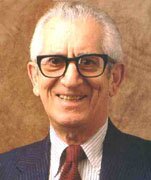
|
"Talent is not something to be found in the few; it is to be developed in the many."
"Education must be increasingly concerned about the fullest development of all children and youth, and it will be the responsibility of the schools to seek learning conditions which will enable each individual to reach the highest level of learning possible."
|
|
 Taxonomy of Educational Objectives: Classification of Educational Goals. Handbook 1: Cognitive Domain. (1956) Taxonomy of Educational Objectives: Classification of Educational Goals. Handbook 1: Cognitive Domain. (1956)
B S Bloom (1968/81), 'Learning For Mastery', The Evaluation Comment, 1(2), in B S Bloom (Ed) All Our Children Learning,
McGraw-Hill
 http://www.nwlink.com/~donclark/hrd/bloom.html http://www.nwlink.com/~donclark/hrd/bloom.html
 "Bloom's Taxonomy's Model Questions & Key Words" "Bloom's Taxonomy's Model Questions & Key Words"
 http://www.teachers.ash.org.au/researchskills/dalton.htm http://www.teachers.ash.org.au/researchskills/dalton.htm

|
Constructivism — Learning is the process where individuals construct new ideas or concepts (schema) based on prior knowledge and/or experience. Individuals construct knowledge by working to solve realistic problems, usually in collaboration with others. This theory builds upon cognitivism, but emphasizes the importance of social interaction, discovery, and the personal construction of meaning from experience.

|
|
Jerome Bruner
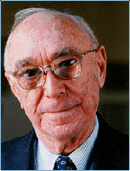
|
"The language of education, if it is to be an invitation to reflection and culture creating, cannot be the so-called uncontaminated language of fact and 'objectivity'. It must express stance and must invite counter-stance, and in the process leave place for reflection, for meta-cognition. It is this that permits one to reach higher ground, this process of objectifying in language or image what one has thought and then turning around and re-considering it"
|
 Toward a Theory of Instruction (1966) Toward a Theory of Instruction (1966)
 Acts of Meaning (1990) Acts of Meaning (1990)
 The Culture of Education (1996) The Culture of Education (1996)
 Discovery Learning Discovery Learning
 http://www.my-ecoach.com/idtimeline/theory/bruner.html http://www.my-ecoach.com/idtimeline/theory/bruner.html
 http://tip.psychology.org/bruner.html http://tip.psychology.org/bruner.html

|
|
Jean Piaget
1886 — 1980
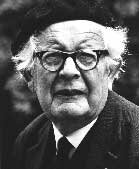
|
"The principle goal of education is to create men who are capable of doing new things, not simply of repeating what other generations have done — men who are creative, inventive and discoverers"
|
|
 The Child's Conception of the World (1929) The Child's Conception of the World (1929)
 The Moral Judgment of the Child (1932) The Moral Judgment of the Child (1932)
 The Construction of Reality in the Child (1954) The Construction of Reality in the Child (1954)
 The Science of Education & the Psychology of the Child (1970) The Science of Education & the Psychology of the Child (1970)
 Genetic Epistemology Genetic Epistemology
 http://tip.psychology.org/piaget.html http://tip.psychology.org/piaget.html
 http://www.piaget.org/ http://www.piaget.org/

|
|
John Dewey
1859 — 1952
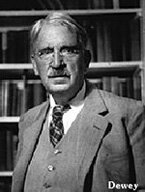
|
"Education is a social process. Education is growth. Education is, not a preparation for life; education is life itself."
"The self is not something ready-made, but something in continuous formation through choice of action."
"Too rarely is the individual teacher so free from the dictation of authoritative supervisor, textbook on methods, prescribed course of study, etc., that he can let his mind come to close quarters with the pupil’s mind and the subject matter."
|
|
 Moral Principles in Education (1909) Moral Principles in Education (1909)
 Moral Judgment and Knowledge (1932) Moral Judgment and Knowledge (1932)
 How We Think (1933) How We Think (1933)
 Experience and Education (1938) Experience and Education (1938)
 Democracy and Education (1942) Democracy and Education (1942)
 Center for Dewey Studies: SIU Center for Dewey Studies: SIU
 http://www.utm.edu/research/iep/d/dewey.htm http://www.utm.edu/research/iep/d/dewey.htm

|
|
Carl Rogers
1902 — 1987

|
" Experience is, for me, the highest authority. The touchstone of validity is my own experience. No other person's ideas, and none of my own ideas, are as authoritative as my experience. It is to experience that I must return again and again, to discover a closer approximation to truth as it is in the process of becoming in me.
Neither the Bible nor the prophets -- neither Freud nor research --neither the revelations of God nor man -- can take precedence over my own direct experience.
My experience is not authoritative because it is infallible. It is the basis of authority because it can always be checked in new primary ways. In this way its frequent error or fallibility is always open to correction." On Becoming a Person
|
|
 Counseling and Psychotherapy (1942) Counseling and Psychotherapy (1942)
 Client-Center Therapy (1951) Client-Center Therapy (1951)
 On Becoming a Person (1961) On Becoming a Person (1961)
 Freedom to Learn (1969), 3rd Ed with H.J. Freiberg (1993) Freedom to Learn (1969), 3rd Ed with H.J. Freiberg (1993)
 Encounter Groups (1970) Encounter Groups (1970)
 A Way of Being (1980) A Way of Being (1980)
 Taking a Closer Look at Carl Rogers Taking a Closer Look at Carl Rogers
 Psi Cafe: Carl Rogers — Reference Links Psi Cafe: Carl Rogers — Reference Links
 Where No Psychologist Went Before Where No Psychologist Went Before

|
|
Ken Wilber

|
"I have one major rule: everybody is right. More specifically, everybody -- including me -- has some important pieces of the truth, and all of those pieces need to be honored, cherished, and included in a more gracious, spacious, and compassionate embrace." Collected Works of Ken Wilber , vol. VIII, Introduction, p. 49
|
|
 The Holographic Paradigm (1982) The Holographic Paradigm (1982)
 Quantum Questions (1984) Quantum Questions (1984)
 Integral Psychology (2000) Integral Psychology (2000)
 A Theory of Everything (2000) A Theory of Everything (2000)
 KenWilber.com KenWilber.com
 The Integral Institute The Integral Institute
 Ken Wilber Online: Shambala Publications Ken Wilber Online: Shambala Publications
 Wikipedia: Ken Wilber Wikipedia: Ken Wilber

|
|
Lev Vygotsky
1896 — 1934
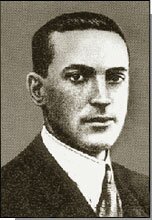
|
"The structure of language one habitually uses influences the way he perceives his environment..." " the speech structures mastered by the child become the basic structures of his thinking."
"In the process of historical development social man changes the ways and means of his behavior, transforms the natural instincts and functions, elaborates and creates new forms of behavior."
"Learning is more than the acquisition of the ability to think; it is the acquisition of many specialized abilities for thinking about a variety of things."
|
|
 Thought and Language (1962) Thought and Language (1962)
 Mind in Society (1978) Mind in Society (1978)
 http://en.wikipedia.org/wiki/Lev_Vygotsky http://en.wikipedia.org/wiki/Lev_Vygotsky
 Lev Vygotsky Archive Lev Vygotsky Archive
 PsiCafe: Vygotsky PsiCafe: Vygotsky
 http://tip.psychology.org/vygotsky.html http://tip.psychology.org/vygotsky.html
 http://mathforum.org/mathed/vygotsky.html http://mathforum.org/mathed/vygotsky.html
 "Vygotsky & Language Acquisition" by Ricardo Schutz "Vygotsky & Language Acquisition" by Ricardo Schutz

|
|
Carl Jung
1875 — 1961

|
"Just as the body bears the traces of its phylogenic development, so also does the human mind."
"General Aspects of Dream Psychology", CW Vol 8: 475
"There is no light without shadow and no psychic wholeness without imperfection." Psychological Reflections, 281
"An understanding heart is everything in a teacher, and cannot be esteemed highly enough. One looks back with appreciation to the brilliant teachers, but with gratitude to those who touched our human feeling. The curriculum is so much necessary raw material, but warmth is the vital element for the growing plant and for the soul of the child."
"Your vision will become clear only when you look into your heart... Who looks outside, dreams. Who looks inside, awakens."
|
|
 Psychology of the Unconscious (1912) Psychology of the Unconscious (1912)
 Psychology of Types (1923) Psychology of Types (1923)
 Modern Man in Search of Soul (1933) Modern Man in Search of Soul (1933)
 "Analytical Psychology & Education" (1946), CW Vol 17: 63 "Analytical Psychology & Education" (1946), CW Vol 17: 63
 The Undiscovered Self (1959) The Undiscovered Self (1959)
 Man and His Symbols (1964) Man and His Symbols (1964)
 The Collected Works in 20 Vols The Collected Works in 20 Vols
 The Psi Cafe: Carl Jung The Psi Cafe: Carl Jung
 Cracking the 4-Letter Type Code: Jung's Cognitive Cracking the 4-Letter Type Code: Jung's Cognitive
Processes (Myers-Briggs Typology)

|



